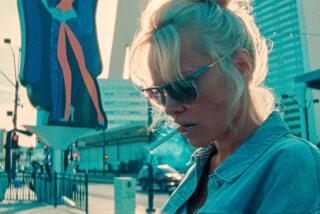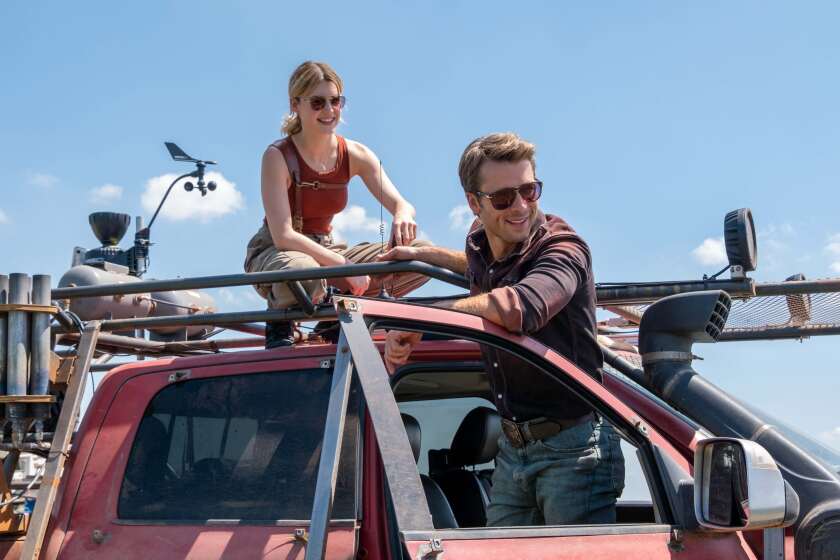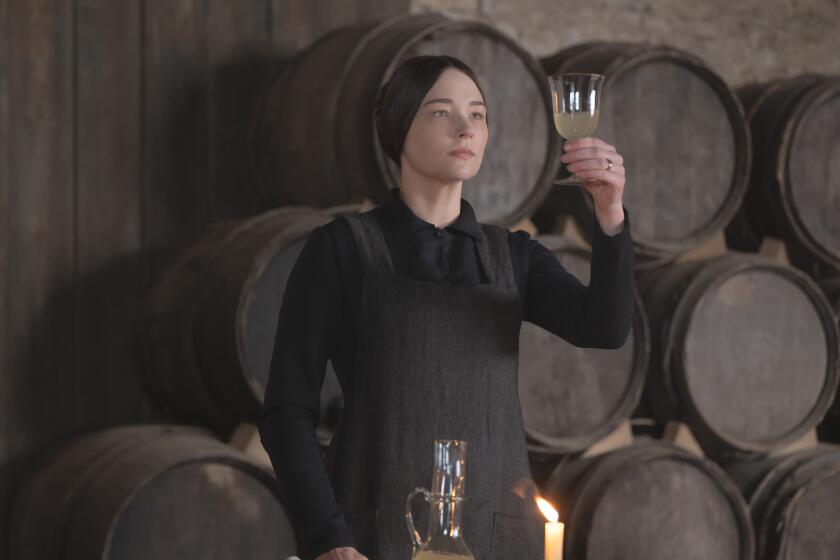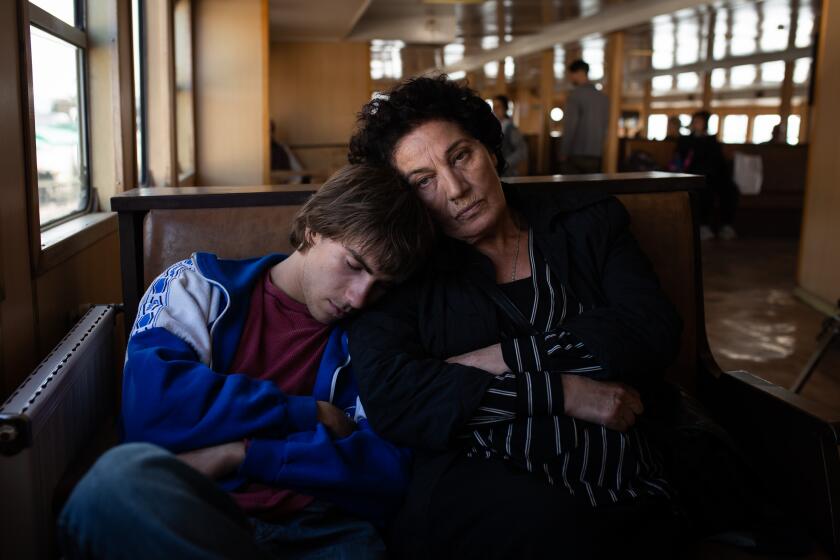Austria will accept no substitute statuettes
For months now, Austrian director Stefan Ruzowitzky has been abiding by a superstition whenever his film “The Counterfeiters” is mentioned in the same breath as the Academy Awards.
“I don’t use the ‘O-word,’ ” Ruzowitzky said with a sheepish grin. The O-word, of course, would be “Oscar.”
So far, his tactic seems to be working. “The Counterfeiters,” a gripping World War II drama based on real-life events in which the Nazis used a group of Jewish concentration camp prisoners in one of history’s biggest counterfeiting scams, has been nominated for a foreign-language film Academy Award.
As a result, Ruzowitzky has become, virtually overnight, something of a star in Austria, where opera, classical music and the theater have long held more public support than films. But that changed with the Oscar nomination. He now finds himself carrying an entire country’s pride on his shoulders.
“I would be the first Austrian to win the award as an Austrian,” he said in a recent interview over lunch in Beverly Hills, one stop on a multi-city U.S. tour to promote his film, which opens Friday at Laemmle theaters in L.A., Pasadena and Encino, and at Edwards Westpark 8 in Irvine.
Austria has produced great filmmakers, such as Billy Wilder and Fred Zinnemann, he said, but their Oscar success came after they left the country.
“Wilder was the best known, but there were also painters, writers -- the whole cultural scene of Austria was affected by the Nazis.”
Ruzowitzky said he became interested in the project when two production companies approached him independently within days of each other with ideas for a film based on Operation Bernhard, the counterfeiting scheme that was run out of Blocks 18 and 19 of the Sachsenhausen concentration camp near Berlin.
The story had all the elements of a good drama, the 46-year-old writer-director thought, especially if it focused on the moral dilemma facing the Jewish inmates who were forced under threat of death to work as counterfeiters.
“This was a top-secret operation, and the concept was that there should be no witnesses, and it was Nazi logic that they would shoot them once the job was done,” Ruzowitzky said.
From 1942 to 1945, the Nazis used selected inmates who were separated from the rest of the concentration camp to produce the fake money. The Nazis planned to flood Britain and the U.S. with the phony currency to weaken their economies and also help the German Reich’s cash-strapped treasury. Altogether, 134 million pounds in phony Bank of England notes were produced. But the inmates managed to deliberately delay the production of U.S. dollars until Allied forces were approaching.
The film’s central character is Salomon “Sally” Sorowitsch, a counterfeiter extraordinaire who agrees to help the Nazis in the organized counterfeiting scheme. It is through Sally that we understand the dilemma facing the prisoners: If they help the Nazis, it could prolong the war, but if they don’t, they will be shot.
“The audience always loves Sally,” Ruzowitzky said. “You can identify with him [as someone] who has no principles and ideals except for trying to do the right thing, which sometimes works and sometimes doesn’t. Just get along as good as possible.”
The character is based on Salomon Smolianoff, a Russian Jewish artist and a notorious forger of art and money in his day. Like the film’s character, Smolianoff also landed in prison before the outbreak of the war because he let a beautiful woman keep him one night too many in Berlin.
Often at odds with Sally in the film is inmate Adolf Burger, an idealist who believes the counterfeiting operation must be thwarted, regardless of whether they lose their lives. The real Burger was a camp survivor who acted as a consultant on the movie. He also wrote a book about his wartime experiences and has lectured widely.
“In real life, Burger is much more pragmatic and a survivalist just as Sally is,” Ruzowitzky said. “Burger and other people who were working on [counterfeiting] the dollar did sabotage it and delay the production of the dollar.”
Ruzowitzky said he had been heartened by the reaction of Jewish audiences to the film but allowed he was unsure at first how they would react to Sally.
“I think that they like the idea of having a Jewish hero in a concentration camp who is not only a victim and slave waiting to be killed but somebody who is doing something, who is able to make moral choices,” the director said. “I think that because he is a crook, actually, and not a victim, makes him seem more human and seem more likable to Jewish audiences.”
The filmmaker’s grandparents were Nazi sympathizers.
“I think the whole Nazi ideology [for them] was something revolutionary.” he said. “There are photographs of my grandfather posing at the beach celebrating the human body and, obviously, this fascinated them. My grandmother became head of one of these women’s organizations, and she was making lectures to farmers’ wives on how to feed the children properly with healthy food.
“I think for my family it was very difficult to realize after the war that they had fallen for the wrong side and sacrificed a lot for a criminal and corrupt ideology, and they never really got over that.”
Ruzowitzky, who is married and lives in Vienna, said he knew from age 10 that he wanted to be a filmmaker. “I started to write down the movies I had seen and who was the director and the reviews.” He also read books about filmmakers, Francois Truffaut’s book on Alfred Hitchcock being especially important. Later, Ruzowitzky worked as a freelance director for television, commercials and music videos. His second feature, “The Inheritors,” was Austria’s official entry in the Academy Awards foreign-language category in 1999.
Being a nominee this year should give Ruzowitzky more filmmaking opportunities, particularly on the international scene, but is there a Hollywood film in his future as well?
“Maybe,” he said. “It has to be the right project. Making a bad American movie won’t help my career.”
--
More to Read
Only good movies
Get the Indie Focus newsletter, Mark Olsen's weekly guide to the world of cinema.
You may occasionally receive promotional content from the Los Angeles Times.






